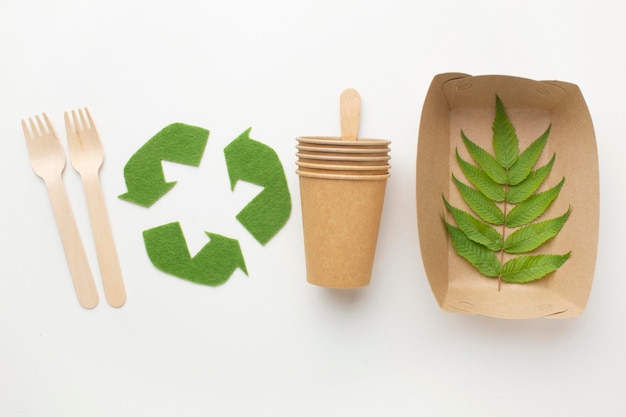

Bioplastics & Biodegradable Plastics: A Revolutionary Force in the Fight Against Climate Change?
For many years now, one of the most pressing challenges faced globally is climate change. One of the major factors contributing to climate change in our world today is plastic pollution. Plastics are so common because unlike other raw materials, plastics tend to be more durable, cheaper and easier to produce. Plastics can be produced in different grades and forms, making them a highly suitable material for a wide variety of objects we make use of almost everyday. In as much as plastics offer numerous benefits, they equally contribute directly and indirectly to the growing challenge of climate change, a canker which leads extreme weather conditions, posing threats to wildlife and human life, among others. Each year, 430 million tonnes of plastic is produced in the world. However, up to two-thirds of this amount are used to produce short-live products like straws, cups, takeaway bags, just to mention a few [1].

These products end up as waste at their end of their lifecycle, finding their way into oceans and land. Unfortunately, plastics tend to take a very long period of time, usually a number of years to decompose. Depending on the material and structure, plastics can take 20 to 500 years to decompose [2]. This implies that plastics are being manufactured at a rate extremely higher than the rate at which they decompose completely. This is a serious problem because plastic waste would not just go away. Whether on land or in oceans, plastic waste increases at a rate faster than they decrease, eventually ending up in the human food chain and if not managed properly, disrupting the ecological balance and life in whichever part of the ecosystem they accumulate at. The problem of plastics with regards to climate change does not start at the end of the lifecycle, it rather begins at the point of their production. Generally, plastics are made from fossil fuels which undergo series of processes under the application heat to form polymers. They are petroleum-based plastics. In 2019 alone, plastics production generated 1.8 billion metric tonnes of greenhouse gas emissions, accounting for 3.4% of the global total [1].
Given that plastics pose serious threats to the environment, right from the onset of production up until the end or their life, extensive research is being done around bioplastics (bio-based plastics) and biodegradable plastics as a substitute for traditional petroleum-based products. Countries like Malaysia, Germany and a few others in North America and Europe are massively promoting research and improvement of these type of plastics [3]. While the terms bioplastics and bio-degradable plastics are sometimes used interchangeably, they do not refer to the same thing. The International Union of Pure and Applied Chemistry (IUPAC) describes bioplastic as a derivative of "biomass or monomers of plant origin that can be engineered at some stage during processing", while biodegradable plastics on the other hand (which can be bio-based or petroleum-based), disintegrate when exposed to naturally occurring bacteria [3]. The production of bio-based plastics is less harmful to the environment and has little to no carbon footprint as they are made from non-petroleum biological resources [3]. Biodegradable plastics offer a promising solution to improper plastic waste management. They have a very short period of decomposition as compared to conventional plastics. In the presence of sufficient humidity, oxygen and microorganisms, these plastics can break down into carbon dioxide and water in 20 to 45 days [3].
In conclusion, bioplastics and biodegradable plastics present a revolutionary solution to the environmental crises posed by conventional plastics. By breaking down more quickly and safely, they reduce the threat of pollution in our ecosystems and food chains, making them ideal for packaging and short-lived products. However, their widespread adoption faces significant challenges, particularly in terms of cost and production scale. With only 2.1 million tonnes produced globally in 2019, a mere fraction of total plastic production, it’s crucial to invest in and prioritize the development and consumption of these eco-friendly alternatives. Embracing this shift is essential in our fight against climate change and in protecting the planet for future generations. [4].

References
[1] United Nations Environment Programme, “Everything you need to know about plastic pollution,” UNEP. https://www.unep.org/news-and-stories/story/everything-you-need-know-about-plastic-pollution
[2] C. Energy, “How long does it take for plastic to decompose?,” Chariot Energy, May 28, 2024. https://chariotenergy.com/blog/how-long-until-plastic-decomposes/
[3]https://www.sciencedirect.com/science/article/pii/S2666086522000157
[4] https://chemistry-europe.onlinelibrary.wiley.com/doi/10.1002/cssc.202002044
Author(s):Jesse K. S. Agbenya & Samuel Osei-Amponsah
Comments
No comments available.